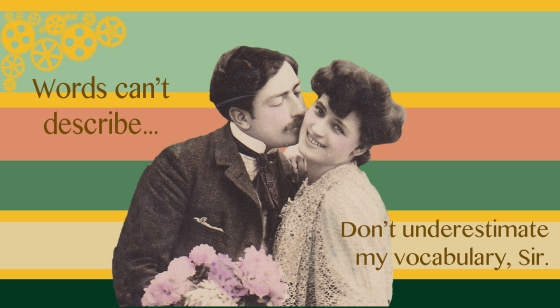
We write historical fiction because it is easy to relate to situations from the past. Stories set in the past, whether closely related to something that actually happened, or not, speak to the present. Moreover, we tell our stories from the present. Feelings are timeless.
The human experience is timeless. In writing my novel, I related to my protagonist’s frustration with her love interest’s refusal to show as much interest in her as he had previously. The feeling I thought my readers could relate to was akin to waiting for a text message. The post was the 1890s equivalent to contemporary text messages. To convey the feeling correctly, I transposed that sense of frustration from repeatedly checking your iPhone to repeatedly checking the mail. The post came more frequently in 1890s London, so it was easier than I imagined, and I was happy with the result.
I want to help you tell your story. I don’t think I am better at telling stories than you are. You may have written more than I have, but I’ve been researching the Victorian era for over two years now.
My dictionary is much more than a collection of words. Words have contexts. The word ‘anthropoid’ carried different connotations in the latter part of the nineteenth century than it had in the first. ‘Deadlily’ sounds like a dead flower, but conveyed the sense of something more like a zombie to Victorians. These words provide layers of meaning. Some (not al) of your readers will get that and it will add richness to your text.
These words can also be fun and very specific.
I’m not creating this dictionary to make money. I would like to give it away for free as much as I possibly can. I would like to find ways for relevant historical society’s to use it as a fundraising tool. I want to help you write your stories. I want to hear your questions and feedback. If I can’t answer your questions, I will probably be able to find someone who can.
As I’ve been blogging about my research, and asking the internet my own questions, I’ve found support from academics and researchers all over the world, who have shared source material with me that I wouldn’t have been able to find anywhere else. I want to give back. If you are anything like me, you are my ideal reader.
Find me on Twitter
Support the project through my GoFundMe page, or visit my shop.





